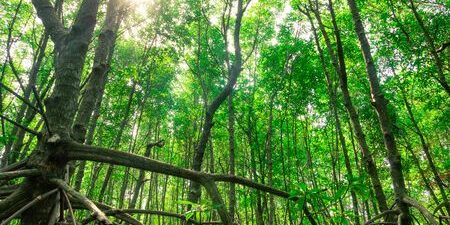Protecting the Vitality of Nature: The Importance of Wood Biodiversity
Wood is one of the most diverse and vital resources in nature. Whether found in forests or used as a building material, wood plays a crucial role in maintaining biodiversity. As an essential material in human life, it is also pivotal in sustaining the health of the Earth’s ecosystems. This article delves into the biodiversity of wood, its importance as a natural resource, and how the sustainable management of wood in Malaysia can protect the environment and ensure a balanced ecosystem.
- The Connection Between Wood and Biodiversity
Biodiversity encompasses the variety of life forms on Earth, including plants, animals, microorganisms, and their ecosystems. Wood, sourced primarily from forests, plays a central role in maintaining this biodiversity. Malaysia’s tropical forests are biodiversity hotspots, housing a rich variety of species. About one-third of all global species are found in tropical forests, which also provide abundant wood resources.
Forests are not only home to countless species of trees but also vital habitats for animals and plants. From insects to large mammals and birds, many species rely on trees for food, shelter, and protection. In turn, these species support the forest ecosystem’s overall biodiversity. The unique diversity of wood, with its varied textures, colors, densities, and strengths, directly impacts the biological communities that depend on forests.
- Ecological Value of Wood
Beyond its role as a building material, wood is integral to the ecological balance of forests. Trees play a critical role in absorbing carbon dioxide and releasing oxygen, which helps mitigate climate change and protect biodiversity. Forests act as carbon sinks, storing carbon and reducing the amount of greenhouse gases in the atmosphere. This is a vital strategy to prevent global warming and safeguard biodiversity.
In addition, trees’ root systems stabilize soil and prevent erosion, ensuring the survival of plant and animal life within the ecosystem. Trees also regulate the water cycle, releasing moisture into the atmosphere through transpiration, which maintains ecological balance and supports the diversity of life in forests.
- Wood and Sustainability in Malaysia
With increasing global awareness of environmental issues, sustainable management of wood resources has become a priority. In Malaysia, sustainable logging practices and forest management are key to protecting biodiversity and ensuring that forests remain healthy and productive.
Responsible harvesting prevents over-exploitation of forests, helping preserve species and their habitats. Malaysia’s efforts in sustainable forest management include scientifically managed logging practices that balance the use of wood with the regeneration of forest ecosystems. By using certified sustainable wood, businesses and consumers can ensure that their wood products come from responsibly managed forests, reducing the impact on biodiversity.
- Challenges to Wood Biodiversity
Despite the benefits wood provides to biodiversity, several challenges threaten its vitality. Overharvesting, illegal logging, and the effects of climate change are significant threats to Malaysia’s forests. Excessive logging can harm forest structures, depriving wildlife of their habitats and leading to a loss in biodiversity.
Climate change, in particular, is putting increasing pressure on Malaysia’s forest ecosystems. Extreme weather patterns, such as droughts and heavy rainfall, can affect tree health and growth, making them more vulnerable to pests and diseases. This disrupts the supply of wood and damages the overall health of the forest, threatening biodiversity.
- Protecting the Biodiversity of Wood
To protect wood biodiversity, it is essential to strengthen forest protection and management practices in Malaysia. This includes promoting the adoption of sustainable forest management techniques, supporting certification systems for sustainable wood, and combating illegal logging.
Raising awareness about the importance of wood biodiversity and encouraging consumers to choose sustainable wood products is also crucial. By supporting sustainable wood production and consumption, we contribute to preserving Malaysia’s forests and promoting global environmental conservation.
Conclusion
Wood, as a natural resource, holds immense value for both humans and the environment. Its contribution to biodiversity cannot be overstated, as it plays a vital role in maintaining healthy ecosystems. In Malaysia, responsible wood sourcing, sustainable forest management, and consumer education are key to protecting the biodiversity of wood for future generations. By safeguarding Malaysia’s forests and ensuring sustainable use of wood, we can promote biodiversity conservation, support ecological balance, and help address global environmental challenges.






